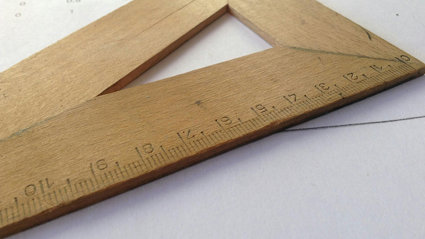
Assessment process and what assessors look for
Learn more about the Chartered Geographer assessment process and what CGeog assessors will look for in your application.
Chartered Geographer uses a robust two-stage expert peer review assessment panel to review every case. Our assessors check that your application meets the eligibility criteria and that you demonstrate a sufficient level of qualifications, experience, professional engagement and achievement to merit the award of Chartered Geographer.
Assessment process
First stage
In the first stage, Assessors will independently review your application materials and evidence, and make a recommendation. Initial Assessors often provide constructive feedback and request additional information to strengthen your case before it goes to the second stage of review, and you are given the opportunity to provide this information and/or re-work aspects of your application.
Second stage
In the second stage, your application is considered alongside the feedback and recommendations from the first stage review. If your application is successful, you will be recommended to the Society’s Council for acceptance as a Chartered Geographer.
Recommendation
If you are recommended for acceptance as a Chartered Geographer, this will be formally approved at one of the meetings of the Society's Council, which normally take place in April, June, September and December.
If the Assessors feel that the application does not yet demonstrate the requirements for accreditation, they may recommend that the application be placed 'on-hold' to allow you time to acquire the experience, development or evidence needed to support a re-appraisal of your application.
Additional information and hold requests
There is no need to be discouraged if further information is requested on your application or it is recommended that your application is placed on hold to allow you time to accrue further evidence or experience. Additional information is currently requested in approximately two-thirds of all applications; this depth of consideration and attention to detail by subject experts underpins our robust review process.
Occasionally, Final Assessors may request an interview if they feel it will benefit your application or the assessment process. Full support and guidance will be offered in the event of an interview being requested.
What assessors look for
Assessors will look for evidence that:
- The case been made for CGeog status.
- There is sufficient professional context to demonstrate competence and professionalism.
- There is sufficient professional engagement, within and/or beyond your organisation.
The case been made for CGeog status
- How does your experience and knowledge mean you are qualified for CGeog?
- Is there explicit evidence to indicate that the value of CGeog as a professional qualification will be understood through interaction with other professionals?
- Is there an explicit statement as to why you want to become a Chartered Geographer?
There is sufficient professional context to demonstrate competence and professionalism
- Does your work demonstrate the application of geographical skills, knowledge and understanding in a professional context?
- Is the level of experience and professional responsibility demonstrated appropriate, for example, does it extend beyond offering technical support or services under the supervision of other professionals?
- Is enough information given? For example, details of collaborative work undertaken, topics and audiences for external lectures and publications, and evidence of the quality and success of these activities. Describe the nature of engagement with external organisations or networks. Where you have stated that you have given presentations or published work, we should be told dates, subject, organisations, locations, outcomes and so on. (Not all of these activities are expected, these are just examples; the CPD template provides further guidance.)
There is sufficient professional engagement, within and/or beyond your organisation
- How have you engaged with professional networks, communities of practice and your peers?
- How are you demonstrating an ongoing commitment to supporting and engaging with geography as a discipline and/or profession (for example, through mentoring, memberships, outreach programmes, and supporting colleagues, both internal to your organisation and externally).
For those without formal geographical training, is there a commitment to developing and applying geographical skills knowledge and understanding over an extended period?
- Does your professional experience demonstrate an appreciation of the scope and significance of a geographical perspective beyond the technical requirements of your work? For example, a GIS specialist should be able to evaluate the limitations, as well as the potential, of applying GIS analysis and modelling to complex social or environmental problems.
- Has there been any specifically geographical continuing professional development (CPD) relevant to your work? How do you keep up with current geographically-relevant research, through attendance at courses or conferences, or the use of publications? Do you show clear evidence of involvement with a geographical or geographically-related community?
Applications that do not mention geography or Chartered Geographer are not accepted, and information about travel and hobbies is not appropriate.
The Assessor handbook
The Assessor handbook provides all necessary details for Chartered Geographer Assessors